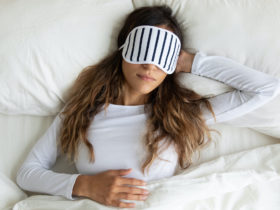An estimated 26% of Americans ages 18 and older – that’s about 1 in 4 adults – suffers from a diagnosable mental disorder in a given year, according to John Hopkins Medicine.
While medication can be the right path for some people, others prefer to try a more natural, “do it yourself” mental health regimen before opting for prescriptions. There are many ways that you can improve your mental clarity and overall health while also finding happiness and peace of mind.
Let’s take a look at some of the ways physical activity can aid in better mental health.
The Science Behind Physical Activity & Mental Health
When you participate in physical activity, such as a sport or exercise program, your body releases several chemicals. These chemicals can play an important role in your mental health.
Dopamine: Satisfaction & Motivation
One chemical that is released is dopamine. When you make that three-point shot in a basketball game, a surge of dopamine is released, giving you a boost of satisfaction and motivation. Dopamine also helps with memory and motor skills. More importantly, it also helps regulate your mood, which plays a big part in your mental well-being.
Endorphins: The Natural High
Physical activity also allows endorphins to be released. Endorphins are a sort of “high on life” chemical that gives you feelings of pleasure and well-being. They also help with pain and stress relief, battle depression and anxiety, which are all keys to good mental health.
Serotonin: “I Feel Good!”
When you work up a sweat, your body’s reaction is to increase the production of a chemical called serotonin. Serotonin is a mood-boosting chemical. People with depression are known to have low amounts of serotonin, which supports the idea that physical activity helps with mental health.
BDNF: Help Your Brain Last Longer
Perhaps one of the most important chemicals released during physical activity is a brain-derived neurotrophic factor (BDNF). BDNF helps support long-term brain health and aids in repairing damaged nerve cells.
Anxiety and depression can cause brain cells to malfunction, so allowing your body to release more BDNF is a great way to help prevent and restore damaged nerve cells. Studies show that these malfunctioned cells can make you more prone to other mental health problems and mood disorders later in life.
According to nature.com, physical activity can increase brain production of BDNF up to three times over what is produced at a resting state!
Now that you know the science behind how physical activities can boost your mental health, let’s look at other ways movement can help with your mental well-being.
Social Sports & Mental Health
One of the greatest health benefits of physical activity is social interaction. What does social interaction do for you and your mental health?
Being part of a social group, such as a team sport or exercise class can have a tremendous, positive impact on your well-being. These types of activities give you a social outlet, present opportunities for making new friends, and also help you to develop empathy for others.
When you think about positive mental health, you likely think about a feeling of being happy and joyful.
According to Kelly McGonigal at Berkley, “In 1912, French sociologist Émile Durkheim coined the term collective effervescence to describe the euphoric self-transcendence individuals feel when they move together.“
McGonigal adds, “Moving with others — for example, in group exercise, yoga, or dance classes — is one of the most powerful ways to experience joy.”
All physical activities, whether it be an exercise program, yoga class, walking group, or team sport, give you a sense of purpose and a goal to work toward. By building social connections, you can reduce stress and anxiety. Sports and social groups can also be a buffer when your mood is low or you have had a stressful day.
Physical Activity Helps Develop Better Sleep Patterns
Your sleep pattern affects your mood and your emotional reactivity (negative, impulsive reactions). Therefore, proper sleep plays a big role in your mental health.
Lack of sleep can even be tied to mental health disorders, including the risk of suicidal ideas or behaviors.
Participating in physical activity can help you to build a better sleep pattern. According to Charlene Gamaldo, M.D., medical director of Johns Hopkins Center for Sleep, There is evidence that exercise does help you fall asleep faster, giving you a better quality of sleep, which is also beneficial to your mental health.
Sleep problems are linked to mental illnesses, such as anxiety, depression, attention deficit hyperactivity disorder (ADHD), and bipolar.
Exercise and physical activity can fight off stress and anxiety.
Not only can regular to moderate activity fight off these negative health issues, some consider this better than an anti-anxiety drug. Exercise and physical activity relaxes you and allows for healthy, happy, natural chemicals to be released, thus giving you a more positive and stress-free mindset.
Always consult your doctor before you add to or change your normal physical activity regimen.














Join the GloWell Community on Social!
Don't risk missing a single thing. Follow us on social and become part of the GloWell community.